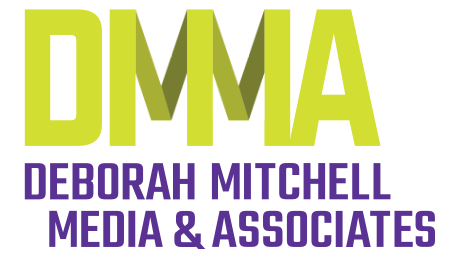How To Spot And Avoid Podcast Scams
The Rise of Fake Podcast Schemes
Podcasts are powerful tools for entrepreneurs to showcase expertise and connect with audiences. Unfortunately, scammers have noticed this trend and are exploiting it. Fake podcast invitations have become an elaborate scheme to extract money or personal information from unsuspecting professionals.
A recent example reported by ClickOrlando highlights how enticing invitations from seemingly “popular” podcasts can actually be elaborate ruses designed to solicit fees or sell personal data. For business leaders aiming to grow their credibility and online presence, these scams can tarnish your reputation and waste valuable time.
Spotting Red Flags: Is the Podcast Invitation Real?
Here are some red flags to help you separate legitimate podcast opportunities from scams:
- Unsolicited Requests from Unknown Sources
- If you’ve never heard of the podcast or its host, proceed with caution. Conduct thorough research, as reputable podcasts typically have an established presence.
- Requests for Payment
- Authentic podcasts invite you to share your expertise without charging fees. If payment is requested to appear, consider it a major red flag.
- Pressure to Respond Quickly
- Scammers manipulate you using urgency, creating a fear of missing out. Quality podcasts allow ample time for you to assess the opportunity.
- Unclear Audience Metrics
- Genuine podcasts are eager to share details about their audience and engagement. If these details are withheld, it’s likely a scam.
- Vague Show Details
- Legitimate podcasts will clearly outline their format, target audience, and mission. Genuine podcasts are eager to share details about their audience and engagement. If these details are withheld, are inconsistent or vague, it’s likely a scam.
- Lack of Verifiable Contact Information
- Authentic podcasts provide direct communication and clear points of contact. Scams often involve poorly written emails, vague language, or unprofessional conduct. Avoid invitations routed through middlemen or free email accounts. Reputable podcasts will have a digital footprint, including websites, social media, and past episodes. If these are missing, be wary.
Top 4 Common Podcast Scams to Avoid
Understanding how scammers operate can help you steer clear of traps. Here are the most common schemes:
- Pay-to-Play Pitches
Scammers often disguise “pay-to-play” invitations as genuine opportunities. They may ask for exorbitant fees while delivering minimal exposure or fake metrics. - Phishing Attempts
Some fake podcasts ask for personal or financial details under the guise of scheduling logistics. Always verify the legitimacy of such requests. - Fake or Unestablished Platforms
Fraudulent podcasts may boast large audiences but lack any visible content or online presence. These scams rely on fabricated reputations. - Paid Upsells for Exposure
Beware of pitches that promise additional promotions for hefty fees. Claims of “thousands of listeners” without evidence are a major red flag.
How to Verify Podcast Opportunities
Before accepting any podcast invitation, take these steps to confirm its legitimacy:
- Research the Host and Podcast
Look up the podcast on platforms like Apple Podcasts, Spotify, or Google Podcasts. Check for past episodes, guest rosters, and listener engagement. A reputable show will have a proven track record of hosting experts in your field. - Evaluate Reviews and Feedback
Read listener reviews or check Podchaser, which aggregates podcast ratings. Positive reviews from real listeners can validate the show’s authenticity.
- Assess Audience Fit
Ask for audience demographics and engagement data. Knowing who listens to the podcast helps determine whether it aligns with your brand’s goals. A podcast without a clear audience profile might be a red flag. - Inquire About Promotion Plans
Ask how the podcast plans to promote your episode. Legitimate shows typically share detailed strategies, like social media promotions, email newsletters, or collaborations with other platforms. - Verify Contact Information
Legitimate podcasts often have professional email addresses tied to their brand. If the invitation comes from a generic email like Gmail, proceed cautiously.
Tips for Finding the Right Podcast Opportunities
Here’s how to ensure you say “yes” to the podcasts that will enhance your credibility and reach:
- Start with Trusted Directories
Use platforms like Apple Podcasts, Spotify, or Podchaser to research shows. These directories host reputable podcasts with verified audiences. - Request Specifics
Ask the podcast host for audience demographics, typical download numbers, and examples of past episodes. Transparency is a hallmark of quality.
Why Podcasts are Great for Entrepreneurs
When you select reputable podcasts, the benefits are immense. Here’s why podcasting should remain a key part of your thought leadership and marketing strategy:
- Connect with a Highly Engaged Audience
- Podcast listeners are often loyal and attentive, trusting the hosts they follow. Your message can resonate deeply, building trust and authority.
- Showcase Your Expertise
- Being a guest allows you to share insights in a conversational format, establishing yourself as an authority in your niche. For entrepreneurs, this visibility is invaluable.
- Boost SEO and Online Presence
- Many podcasts include show notes, transcripts, and links to guest websites. These elements can enhance your website’s SEO, making it easier for potential clients to find you.
The Role of Podcast Consulting in Your Strategy
Podcast appearances are not just about exposure—they’re about building your reputation as a thought leader and aligning your brand with the right audience. At Deborah Mitchell Media & Associates, we specialize in podcast consulting to help professionals identify authentic media opportunities that elevate their credibility.
Take Action: Build Your Brand with Purpose
Podcasting can be a powerful tool in your marketing arsenal when approached strategically. Follow these guidelines to avoid scams and focus on quality opportunities that truly enhance your authority and connect you with the right audience.
If you’re ready to make podcasts a core part of your branding and thought leadership strategy, let’s connect! Schedule a call at calendly.com/dmmadeb, and I’ll guide you through crafting a podcast strategy that aligns with your goals.
Stay savvy, stay safe, and let’s amplify your voice together!















